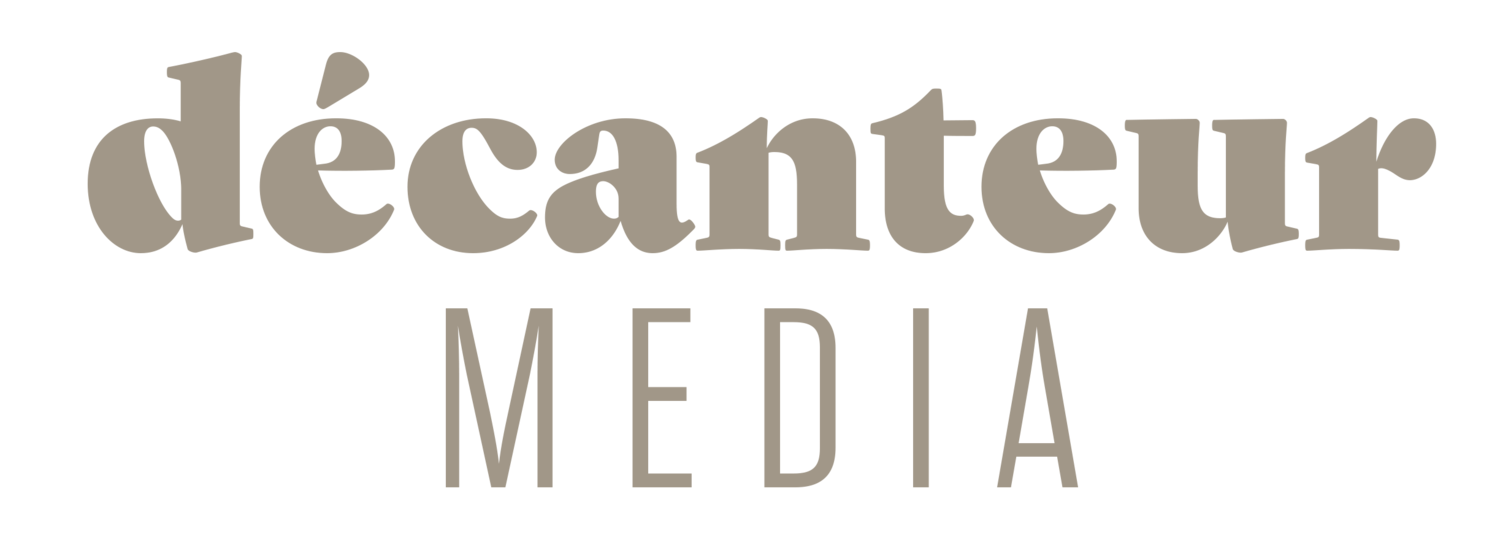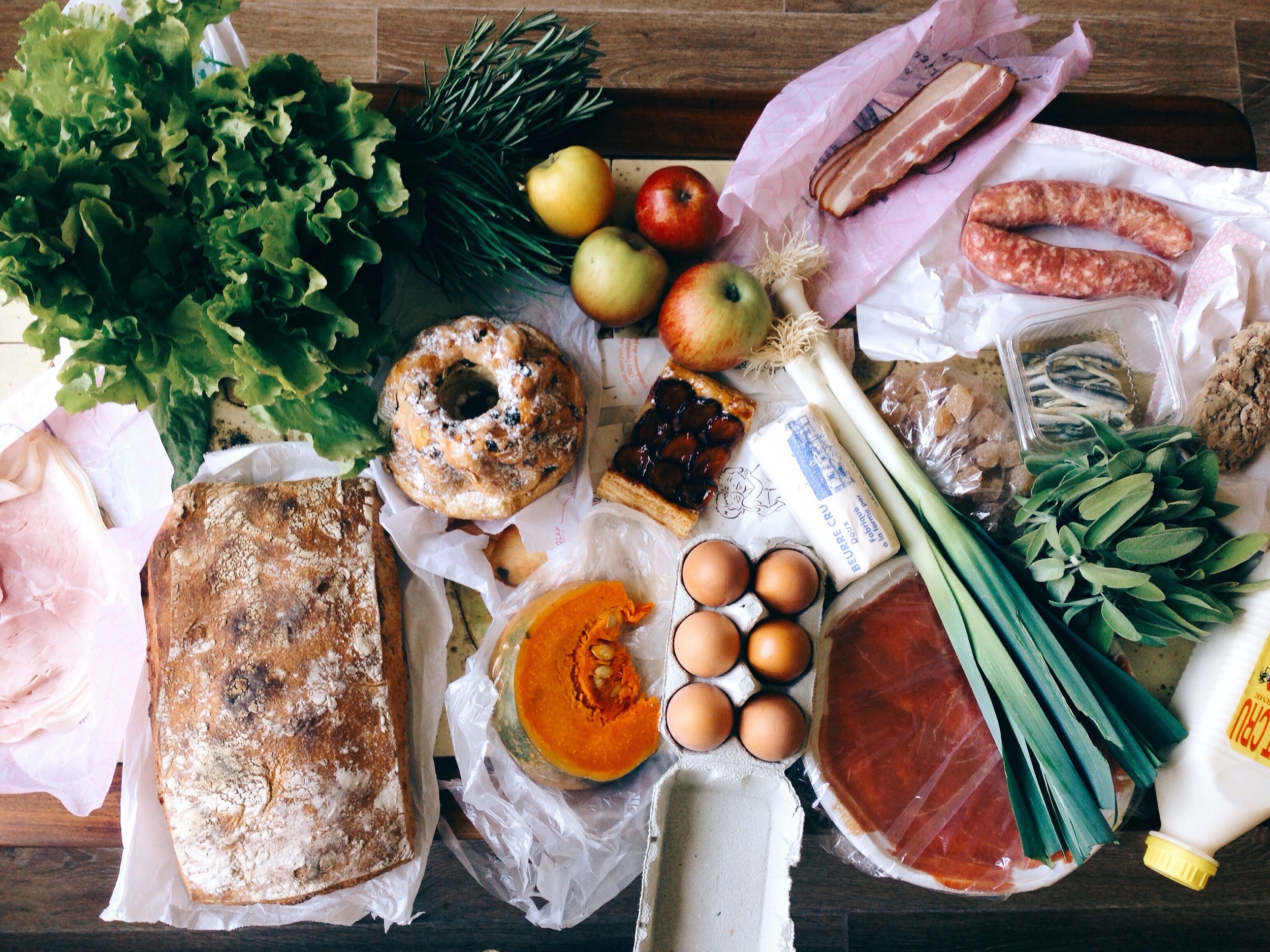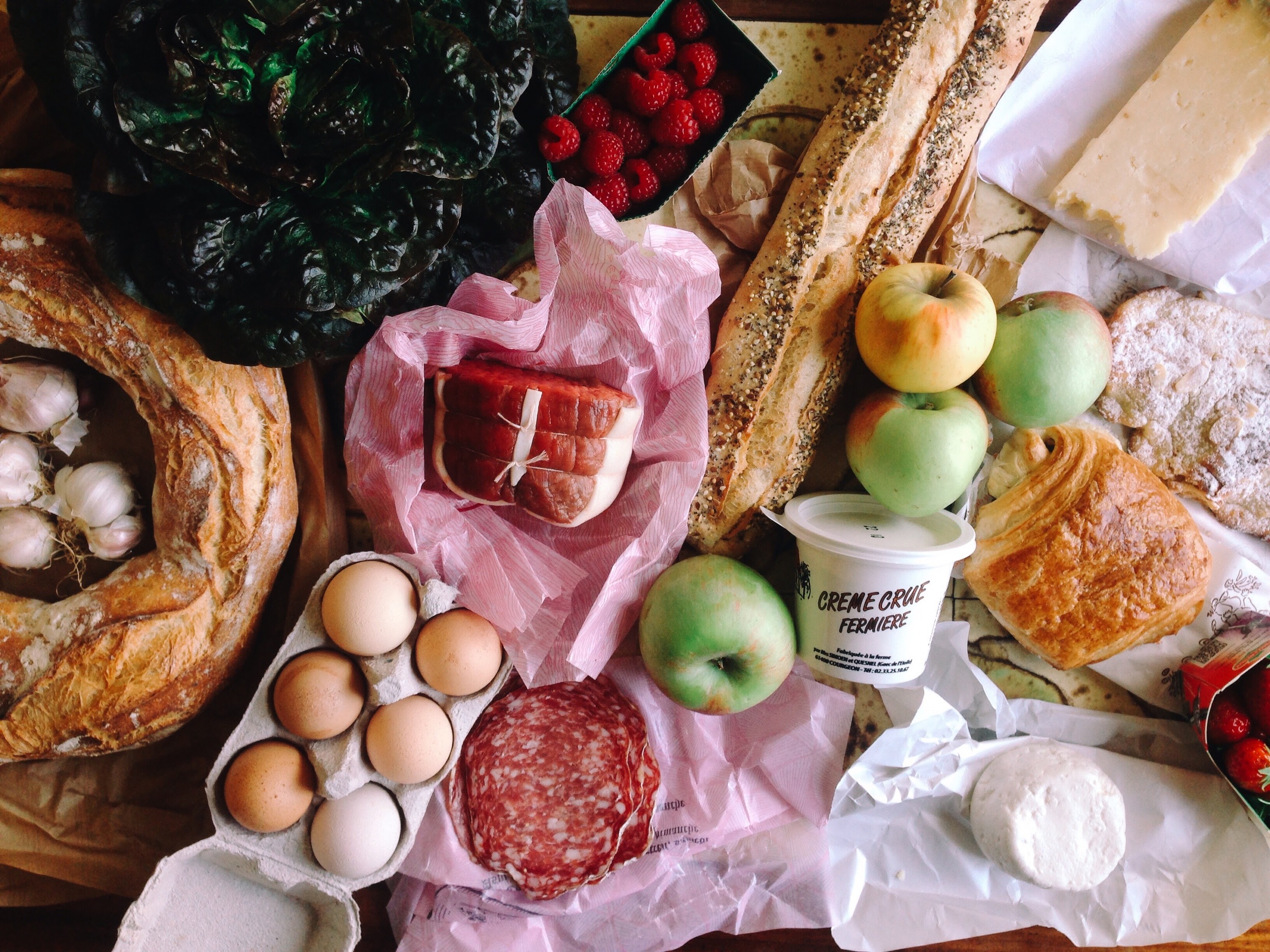Sunday is my favorite day of the week, because Sunday is market day. I roll out of bed, throw on jeans and my black Adidas, maneuver my bike into the elevator and start pedaling towards the Mairie d’Asnieres, where the covered market is held every Thursday and Sunday morning. As a foreigner living in Paris, I’ve discovered that developing routines and rhythms is the easiest way to carve out a home for myself here. In a place where I have absolutely no point of reference, creating my own habits is what anchors me. My market ritual is something sacred, my form of Sunday worship, and my week just doesn’t feel complete without it. The infatuation I have with the Sunday market is partly because of the beautiful bounty of French food. I crave the smells and sounds of the market - whole chickens roasting on spits outside under tents, the choucroute steaming in silver pans, a kaleidascope display of French cheeses in all shapes, sizes, and colors; huge chunks of ruby red beef being hacked into pieces by the butcher; whole rabbits stretched out on their backs, pig heads with gaping toothless mouths and empty eye sockets; chickens with limp necks and open beaks; bread stacked nearly to the ceiling; vegetables tumbling from tables, young men with stubble cutting apples and oranges and avocados to tempt customers into buying. The rush and crush of the market is exhilarating, the array of fantastic foods is mouth-watering, the juxtaposition of oddities and delights so intriguing you never want to look away. It is because of this market that I know I’m ruined for life when it comes to butter, fresh goat cheese, and terrines. I crave the raw milk, small farm eggs still plastered with little downy feathers, fresh cuts of meat and an endless variety of cheeses. I’ll never be able to find such a distinct collection of delicacies in the U.S. because they have long ago died out and been reborn as expensive, artisanal, pretentious expressions of their original selves. But the market holds such a special place in my heart for more than just the food - it’s also about the people. It’s a way for me to connect with a community in which I often feel an outsider, a way to give myself context and feel belonging. Over food, people connect in a way that is entirely unique and quickly intimate. I look forward to this feeling of connection, to seeing the people that have developed into something closer to a friend than a vendor. And the reason why the market facilitates this kind of bond is because, unlike a clerk or cashier, these people are deeply embedded in the food they are selling. The goat cheese man who always makes sure to ask me how I am and noticed as my accent smoothed out makes the fresh goat cheese with his own hands, and drives from his farm every weekend to sell it. The man who carves off slices of pumpkin for me and chooses the crispest apples has hands crusted in dirt from working in the field. The guy who sells me bread and loves to practice his English with me has flour on his face from a morning of baking. These are the people who care about food, and when you care too, a kind of closeness is born. The market is how I orient myself in a world that I often feel lost in. It’s how I carve out a sense of belonging, create a home in a foreign place, and connect with those who understand this place to its roots.
Brunch in Belleville
Each neighborhood in Paris is distinctly unique. Each has a different array of characteristics that make up a certain personality, a feeling you absorb when you are in them. Belleville is one of my favorite neighborhoods in Paris, not least because of how distinctly different it feels. Hard to get to, tucked up in the northeast corner of Paris, Belleville is one of those neighborhoods that manages to escape the Parisian cliché. It has a vibrant, bustling culture of its own that stands out against the Parisian standard without being in opposition to it. It is filled with wandering hilly streets, clean white buildings, Tunisian coffee shops, oriental patisseries, graffiti and modern architecture. It’s almost refreshing, being faced with such different smells and sights and streets and buildings. The typical crowds of Paris are nowhere to be found, and even on cloudy days it feels filled with a blanched sunniness that comes along with the calm of sitting a bit to the side of the heart of Paris.
The jewel of Belleville is the Parc de Belleville, which looks down over the entire city in a sweeping vista similar to that of Sacre Coeur, but with fewer tourists and a better view of the Eiffel Tower. There is a little boulangerie with decent breads and pastries, and a sidewalk café that serves a decent Sunday brunch. Paris has changed my definition of “brunch” fundamentally. On the west coast, “brunch” sort of just means breakfast is served all day, with alcohol. On the east coast, “brunch” is a more expensive breakfast served all day, with alcohol. In Paris, brunch is a fixed price (usually around 20 euros) for a big plate filled with a variety of small dishes - usually different breads or pastries with spreads and confitures, meats and patés, cheeses, vegetables, fruits, juices, and coffee. It’s really like your own personal buffet platter, and it’s glorious
This past weekend was one of those last few with weather beautiful enough to send Parisians scurrying outside to soak up the last of the sunshine. The Parc de Belleville was filled with picnicking Parisians looking down on the city splayed below, swaying awkwardly to some kind of alternative DJ playing in the square above the park. I met a friend for a beautiful long brunch outside on the terrasse of Moncoeur Bistrot, the café at the top of the hill by the park. The “Moncoeur brunch” was a big plate filled with soft scrambled eggs, ham, fromage blanc with honey and walnuts, Comté cheese (my absolute favorite), a carrot and spinach salad, mixed fruit cup, a slice of carrot cake and a little chunk of dark chocolate fudge cake. We ate and talked and enjoyed the warm sun and cool breeze on a terrasse filled with happy Parisians saying goodbye to summer, settling into fall.
Paris: La Rentrée
After four incredible summer months at home drinking in as much of the salty ocean spray, thick foggy nights, deep redwood soil and golden rolling hills as I could, it was time to return to Paris. I am acutely aware of my situation, and how lucky I am to be in it. After a scramble to pay wayward bills from lazy summer months, renew immigration papers, and fix my defunct French phone number, I found myself strolling across the Seine, Eiffel Tower stoic and stark in the distance, on my way to meet a friend for Asian-fusion burgers followed by African drinks at a defunct consulat-turned-bar in the Canal St Martin. It was beautiful out, temperate, the sky awash in that pink glow and speckled with those textural impressionist clouds you only see in Paris. I felt utterly in love with my life, with this anomaly of a city that I belong to even though I can barely get a handle on its language, with the cobblestones and the distinct identities of each neighborhood, with the fact that I discover new things every single time I step outside my door. I was grateful.
Going home for the summer with the intention of returning to Paris for another year meant a lot of questions of a certain nature. “Are you happy to be home? Do you miss Paris? Are you excited to go back? How long will you stay there? Are you fluent yet?” (my least favorite). Constantly being asked about my life in this way revealed a habit that I am trying to combat, a habit which I think many people, especially younger people, are guilty of: compensation, excuses, an acute awareness of the other person’s perceptions and stereotypes and previously harbored opinions. I found myself qualifying everything, which I hate. I felt guilty for living a life that so many people professed envy for; I felt guilty for being fortunate enough to be able to lead this life.
I came to Paris for the first time in 2012 and fell in love. I left it vowing to return but not really believing it would happen for many years. Now, three years later, I have lived in this breathtaking city for a total of 13 months; I am working at the Parisian office of a global advertising agency; I am completing the final courses for my master’s degree; I can speak significantly more French than when I first stepped off the plane, but significantly not enough to be fluent. I did all of these things myself. Luck, fortunate circumstances, and generosity played a part that cannot go without acknowledgement; but I created value and opportunity for myself. When I first studied abroad here I had no goals for the future, no career aspiration, and no idea what I wanted to do with the rest of my life. Moving to Paris was more than just a fortunate circumstance of situations that fell together - it was a calculated, strategic step in my life that turned out to be the greatest thing I have ever done for myself. It pushed me to figure out what I want out of life. It forced me to grow. This experience has given me my future, showed me what I value, given me purpose and direction.
The next time you are feeling lost, directionless, confused, or dissatisfied, be brave enough to take a risk and make a change. Other people may not understand, may even outright disapprove. But listen to yourself and know that no step forward can be a mistake if you learn something from it.
Holidays in Berlin
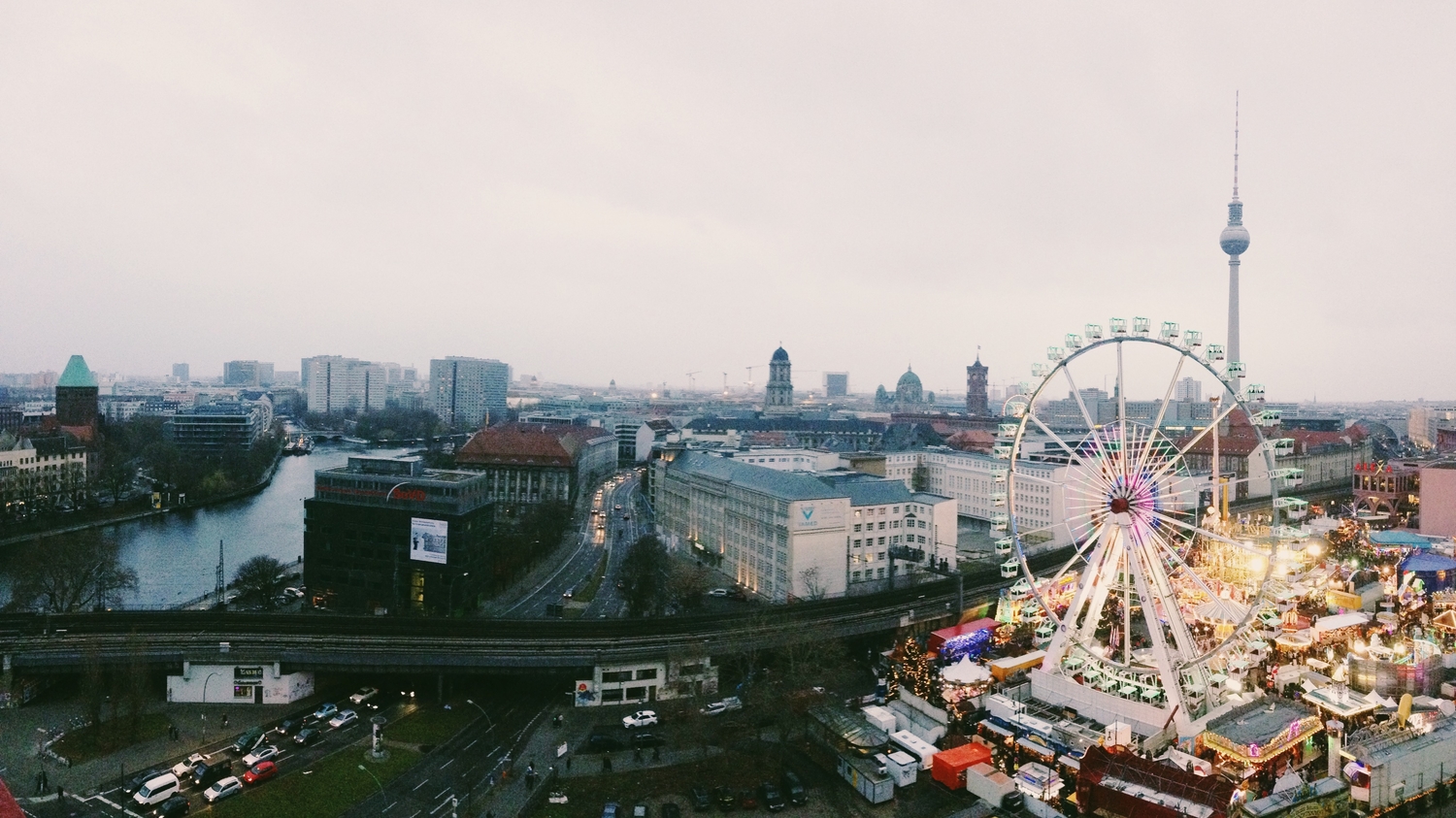

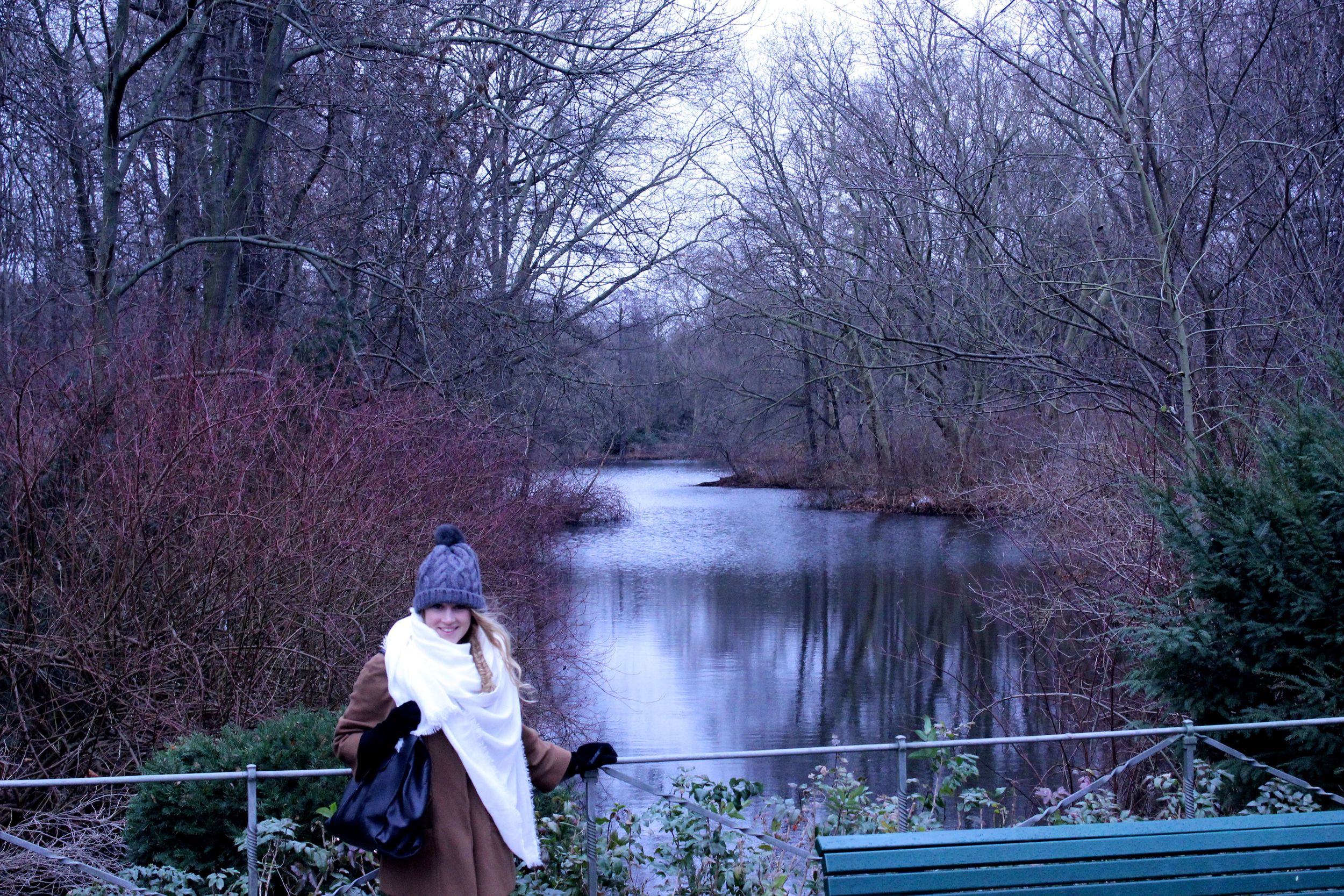

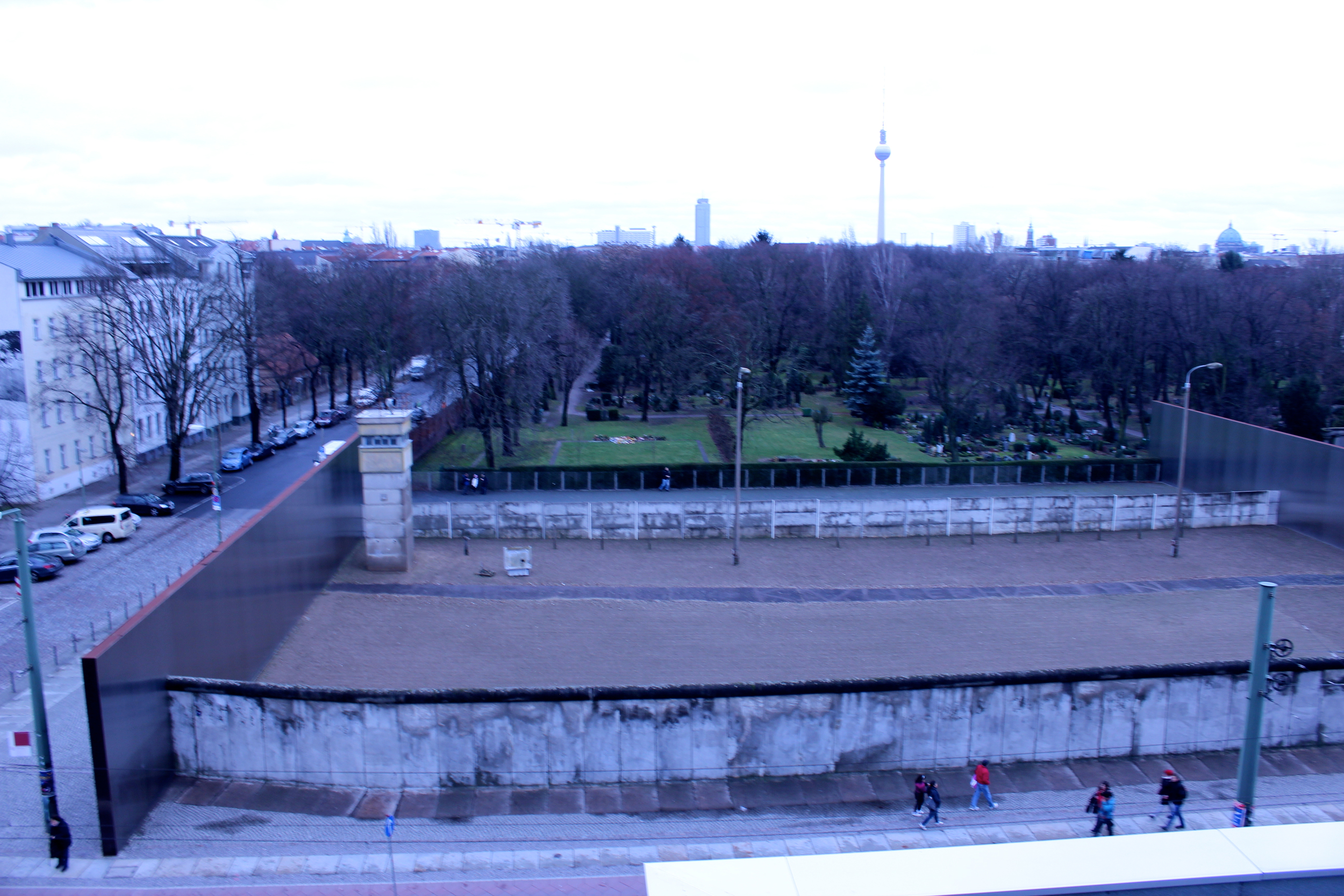
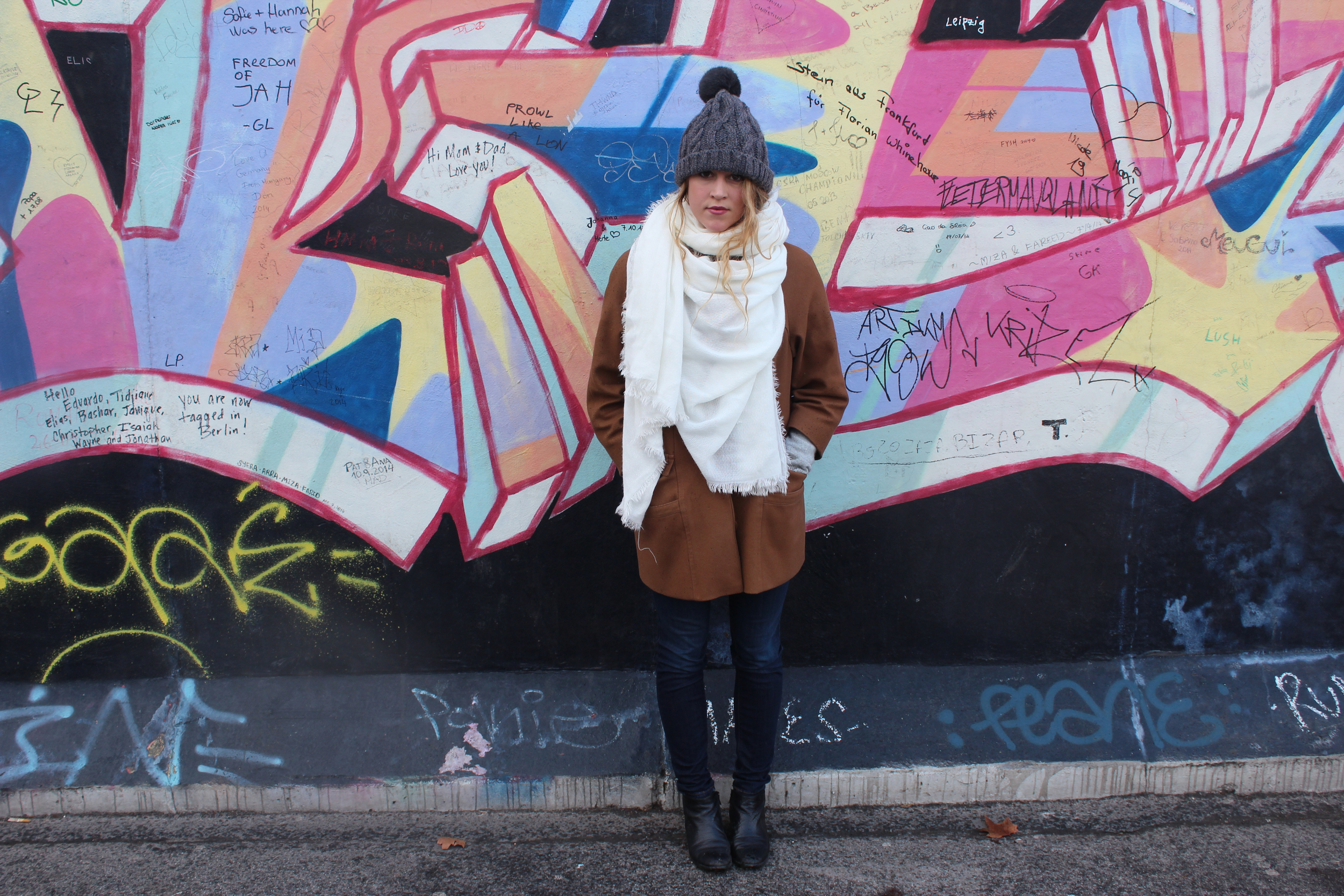
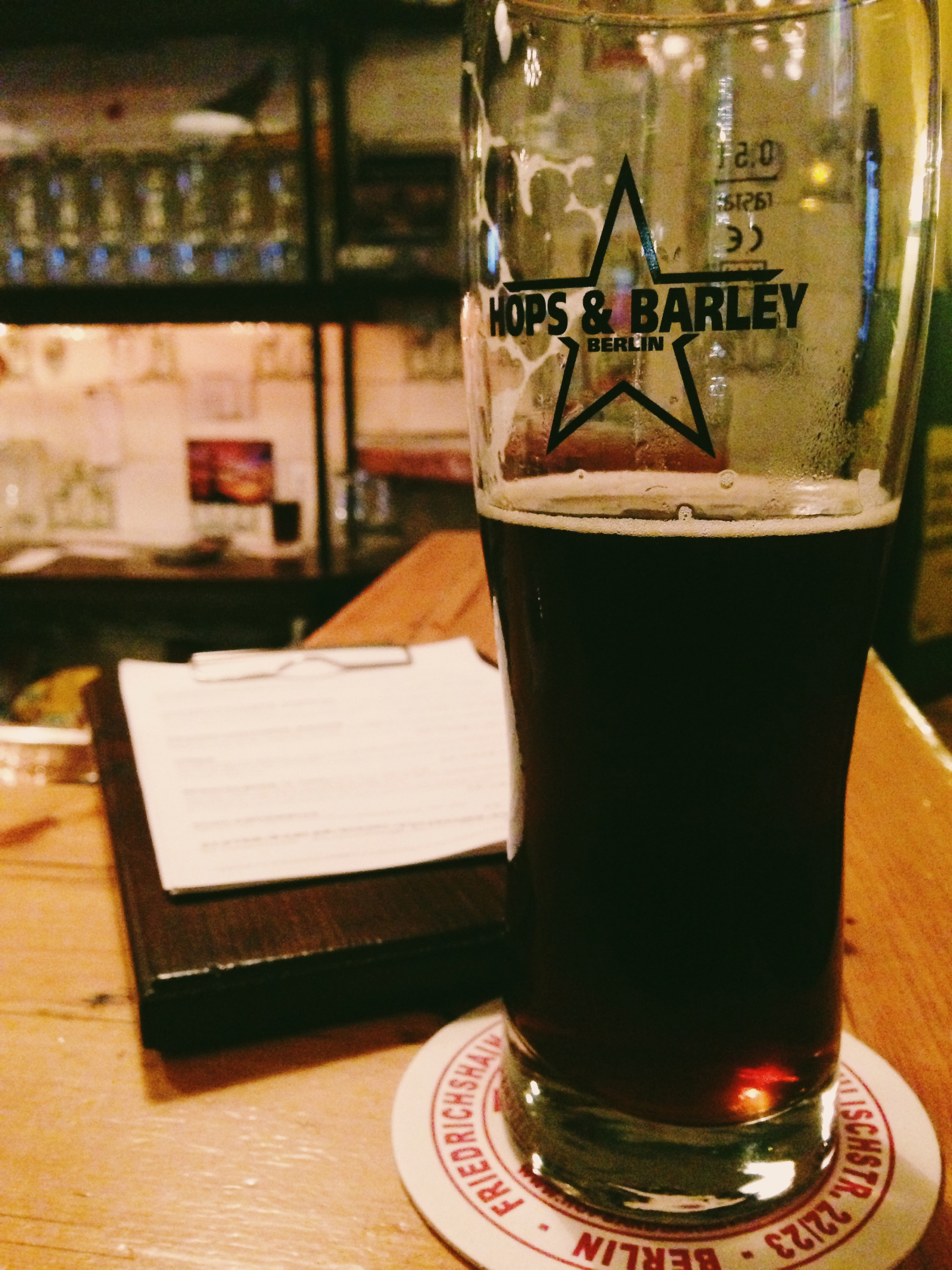
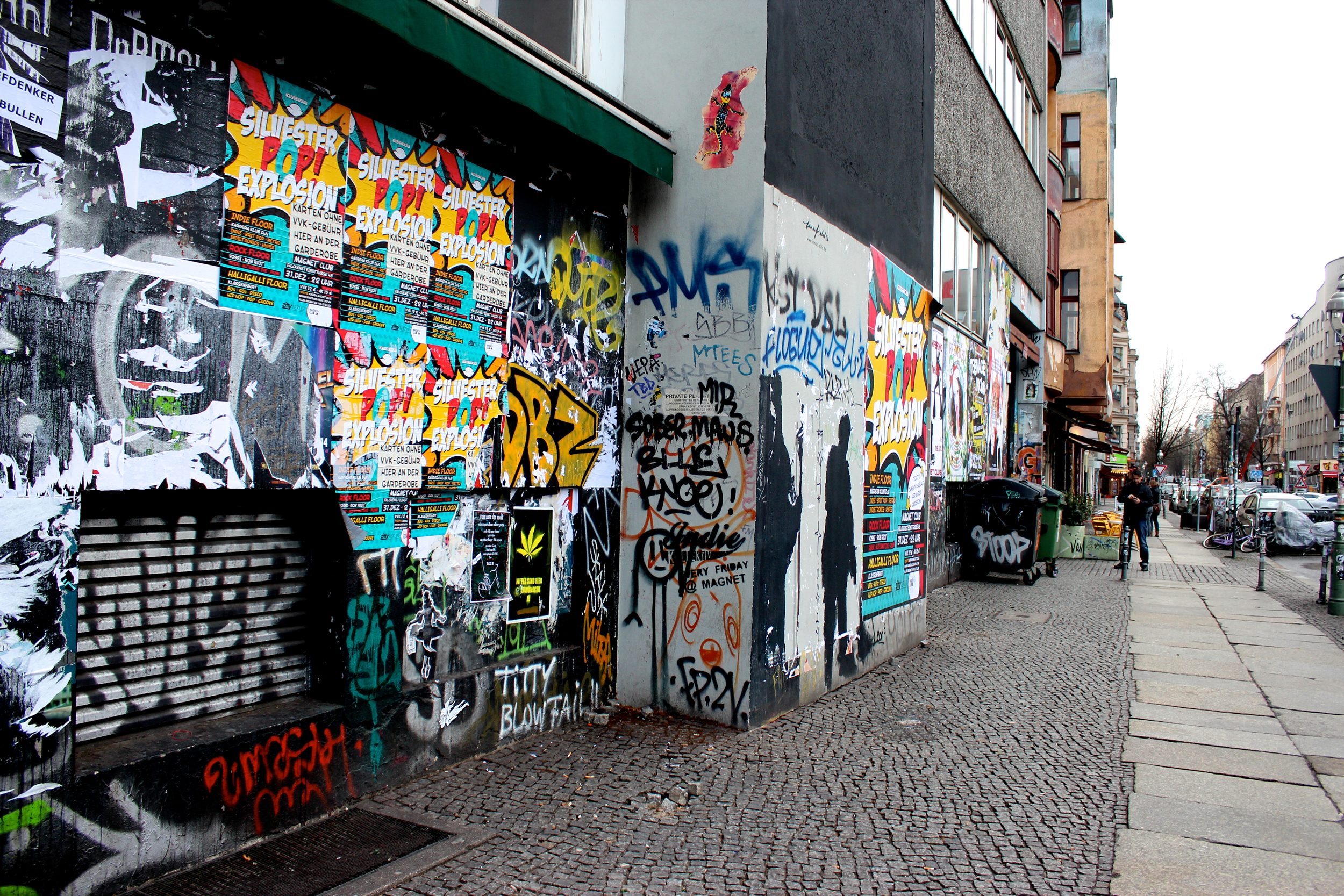
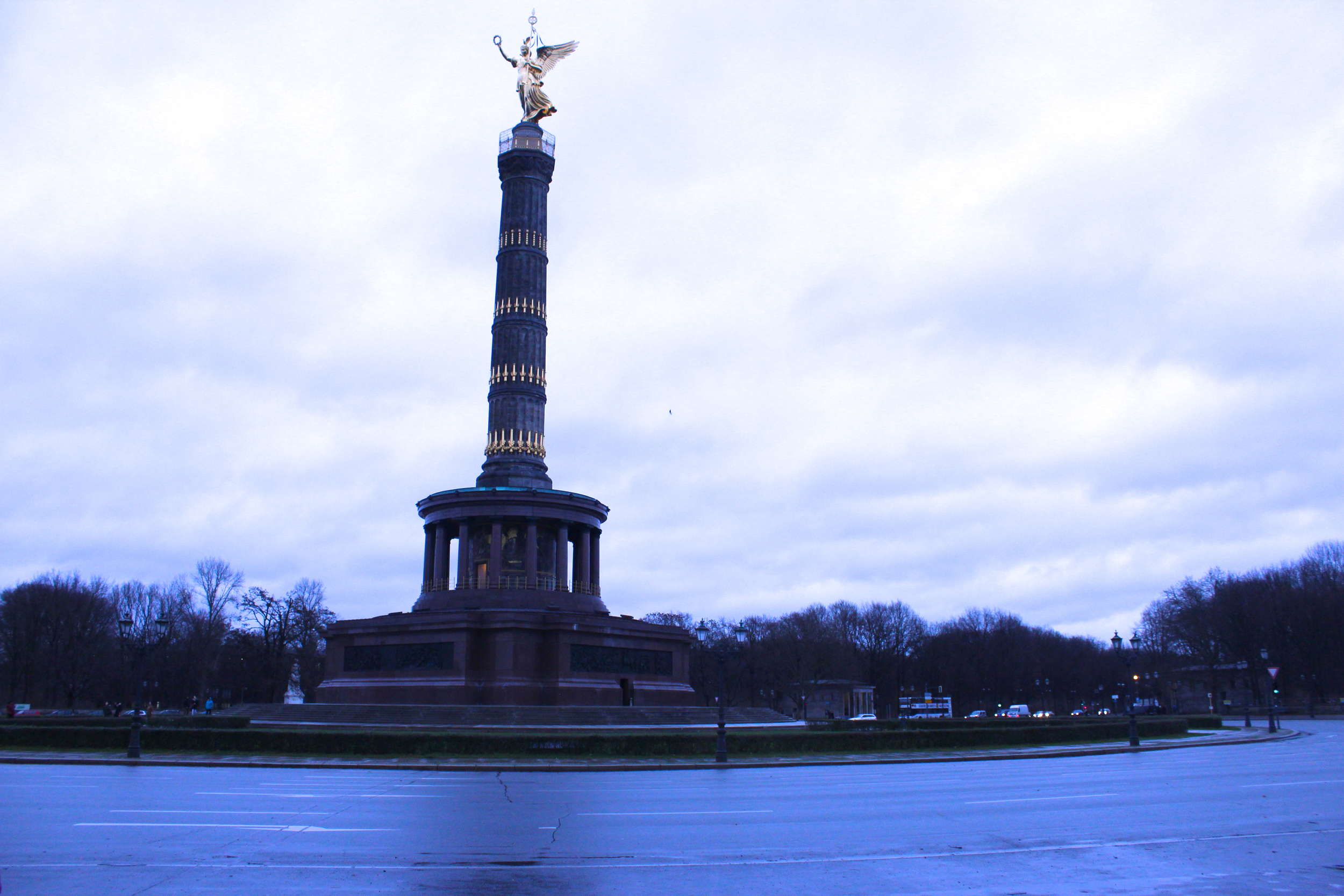
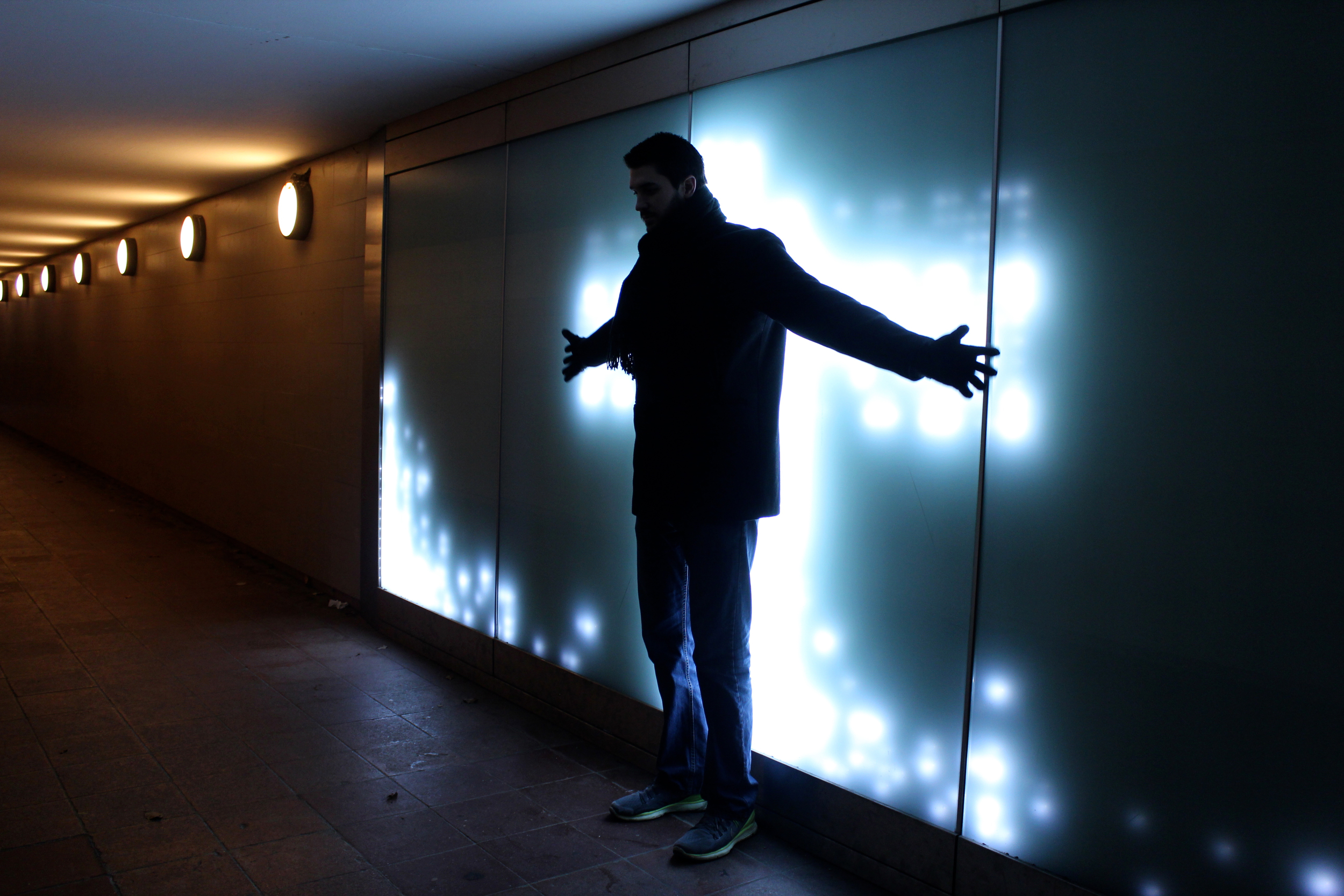
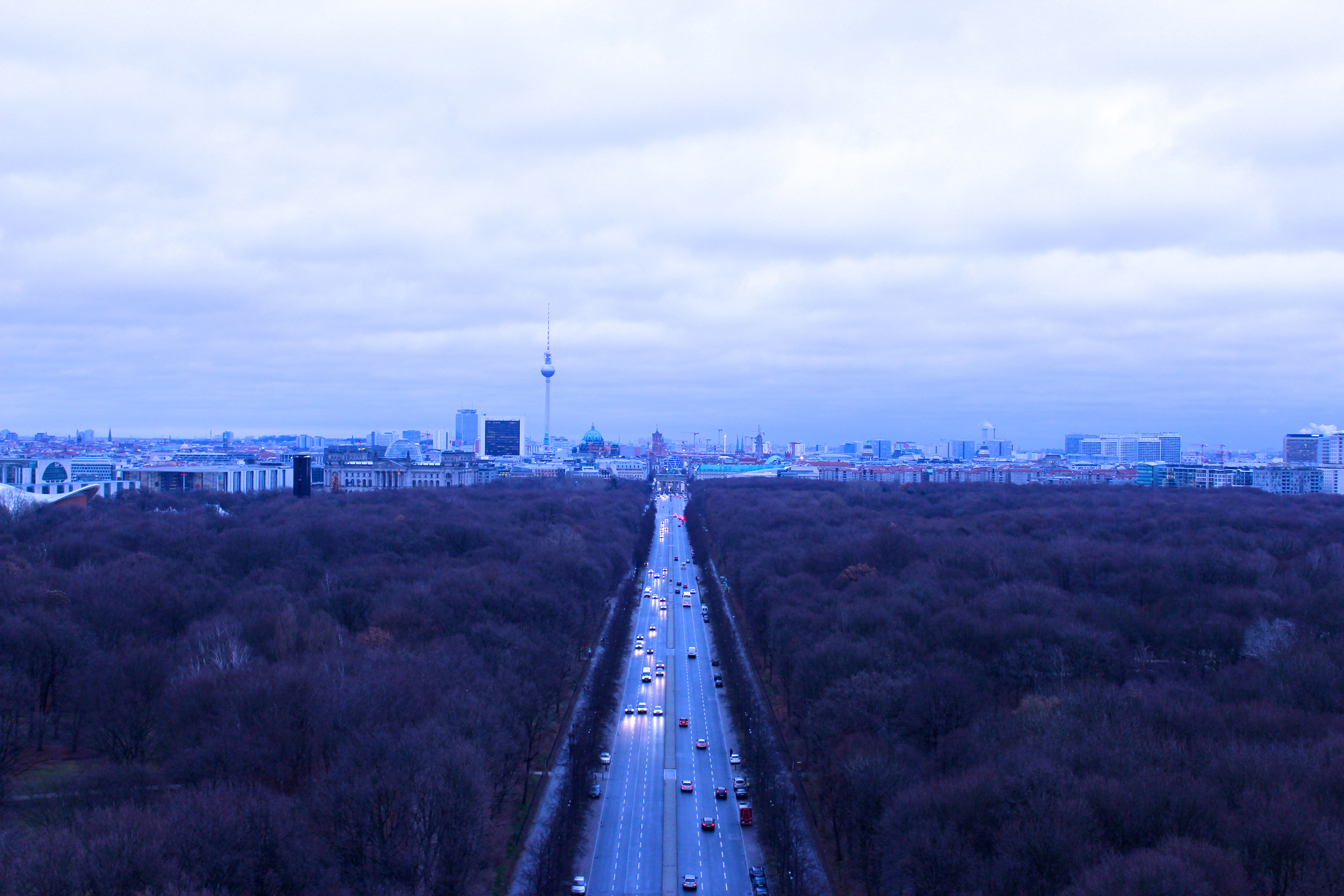
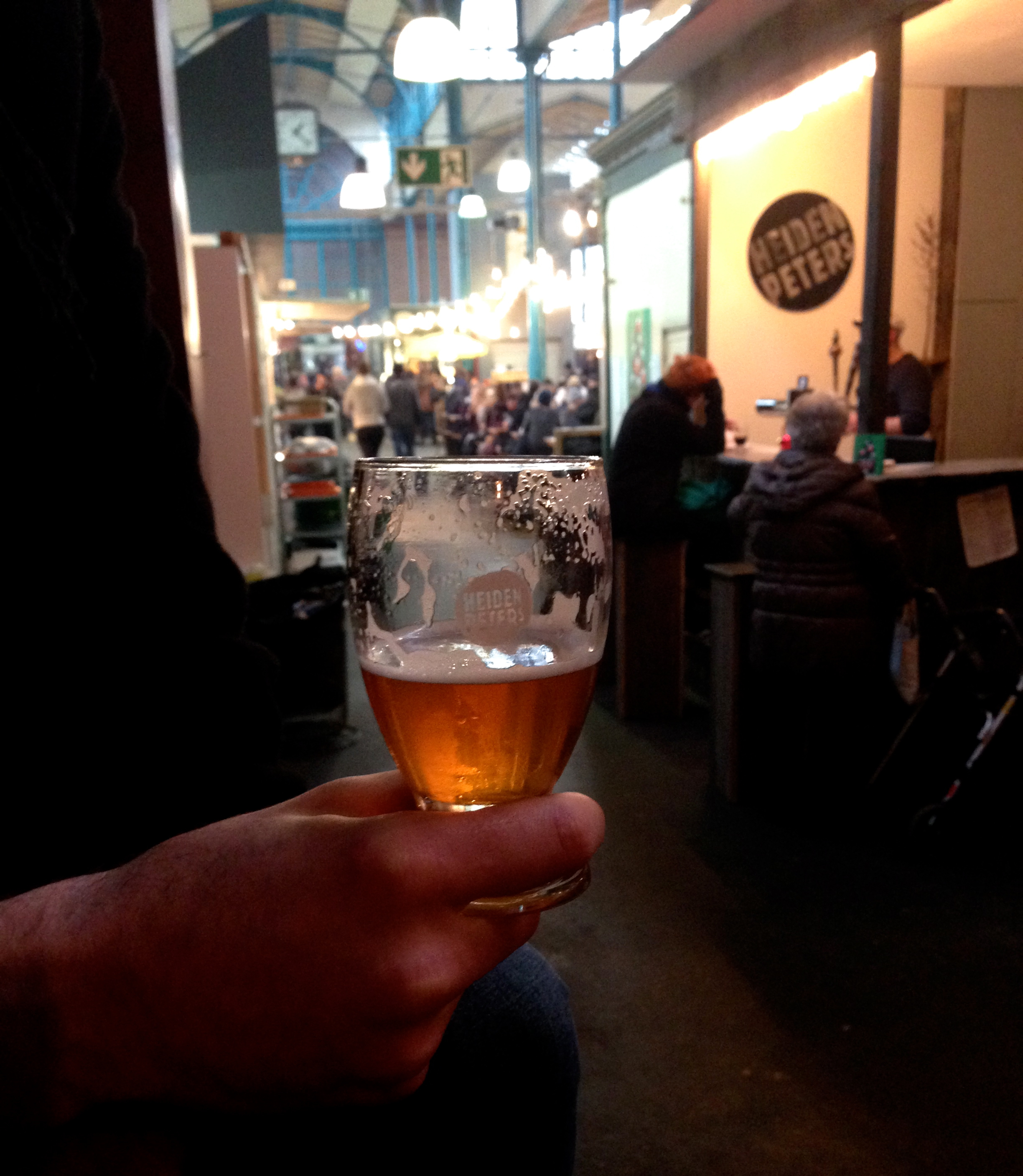
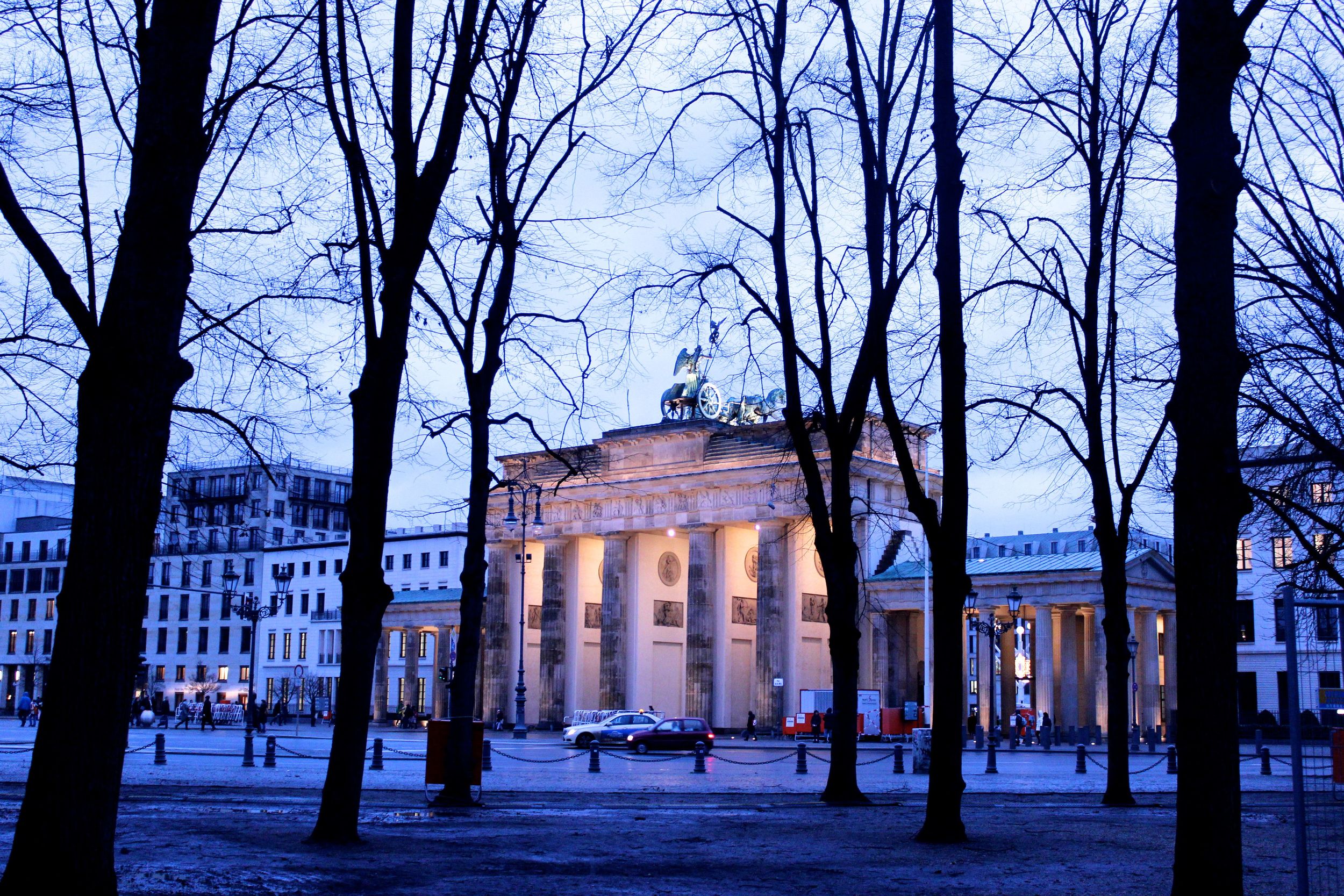

Berlin is a city of ghosts. In the winter, it is grey and cold and dark, its landscape alternating between past and present. Berlin is a city riddled with scars: crumbling concrete structures, monuments pockmarked with bullet holes, remnants of the past - the wars, the persecution, the political strife. But for Berlin, these are not just constant reminders of its difficult history. They are signs of triumph, of the ability for a city to emerge anew from its ashes. Berlin embraces its dark history, transforms it into art and life and expression. All around there are signs of energy, movement, vitality in a city that seems destined to be forever haunted. It's gritty and rough and sometimes just outright dirty, but throughout Berlin there is a piercing beauty and a quality of authenticity. Other European cities are known for churches, art, architecture, nature. But what makes Berlin beautiful and unique is the fact that its people have so thoroughly laid claim to it. They have reshaped the landscape, through street art and concept stores and craft beer and rap music. They have physically molded the city in a way no other place has been, and underneath the patterns of the modern world are the ruins of the past. Berlin is a place I will always think of, and hope to return to.
Italian Imports & Spaghetti alla Carbonara
One of the benefits of going to a grad school in a European city is meeting people from all over the world. I've met a German, a Swede, a Turk, a Jordanian, a Syrian, a Brazilian, a Croatian, an Australian, a Grecian, and an Italian. And sometimes, if you're lucky, one of these new international friends will bring you some treats from their home country.
My friend Violetta is from Turin, just under two hours west of Milan. More interesting to a food lover like me, Turin is located an hour north of Bra, the birthplace of Carlo Petrini and the Slow Food Movement, and current location of the University of Gastronomic Sciences. Read: there is very good food here. And I don't just mean delicious, as all Italian food purports to be with your usual pizza pasta stereotype. I'm talking about some of the most beautifully cultivated produce, hand-crafted products, and carefully tended animals, all of which is heralded as local above all else. Local isn't exactly a fad for Italy, it's a tradition. Violetta told me about the idea of "Zero KM," which is a label applied to products and ingredients designating their locality. Knowing my love for food (especially good food), Violetta had her mother bring me a couple pastas and a bruschetta from her hometown, which I used to make an absolutely amazing Italian feast in Paris.
On the menu: bruschetta, spaghetti alla carbonara, and chardonnay from Macon Valley in the Borgogne region of France.
That morning, I went to the market and picked up some good, crusty bread for the bruschetta (which was incredible and had unexpected olives in it) and some lard fumé, which may sound disgusting (smoked fat? really?) but is actually a much more accurate (and graphic) name for smoked bacon. This was to use in place of the traditional guanciale, which I could not find or just didn't translate to the French meat offerings. I chose to do a carbonara because I wanted to do something simple and not too overpowering in order to fully appreciate the pasta. Carbonara was perfect, because it added a slight accent to the pasta without completely hiding it. I was also intrigued by the term "chittara," which is the name of the machine used to make this particular type of spaghetti, and also contains egg.
Spaghetti alla carbonara is really quite simple. Pasta, parmesan, egg, pepper, and guanciale (or in this case, bacon). And it hits the perfect spot between refined and homey. With the thicker egg noodles, the yolk-sauce really coated the pasta and made for a wonderfully rich bite, lightly peppered, coated in parmigiano-reggiano, and studded with bacon. The white wine didn't hurt, of course - what with my recent wine-tasting adventure and a documentary I saw called A Year in Burgundy, I've been a bit obsessed with Burgundy wines, chardonnay and pinot noir to be specific.
SPAGHETTI ALLA CARBONARA (for two)
Ingredients:
- Spaghetti (about 250g)
- Olive oil (2-3 tbsp)
- Guanciale (or pancetta, bacon, any salted pork meat really)
- Cracked black pepper
- Parmigiano-reggiano
- 2 egg yolks (one for each dish)
- Salt, to taste
Method:
While pasta cooks, sauté bacon in a separate pan. Drain pasta and mix in olive oil, bacon, cracked black pepper, and parmigiano-reggiano. Separate into serving dishes, and individually mix in egg yolk to each. Top with salt to taste, and more parmesan or cracked pepper if necessary.
